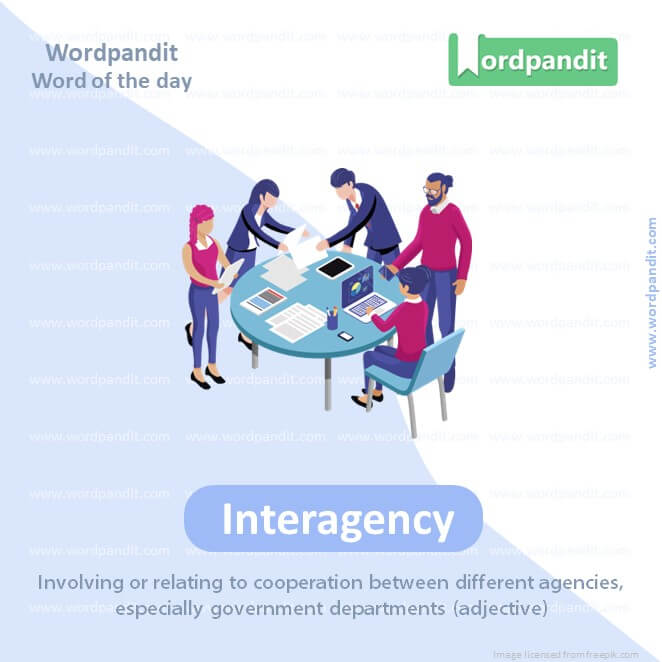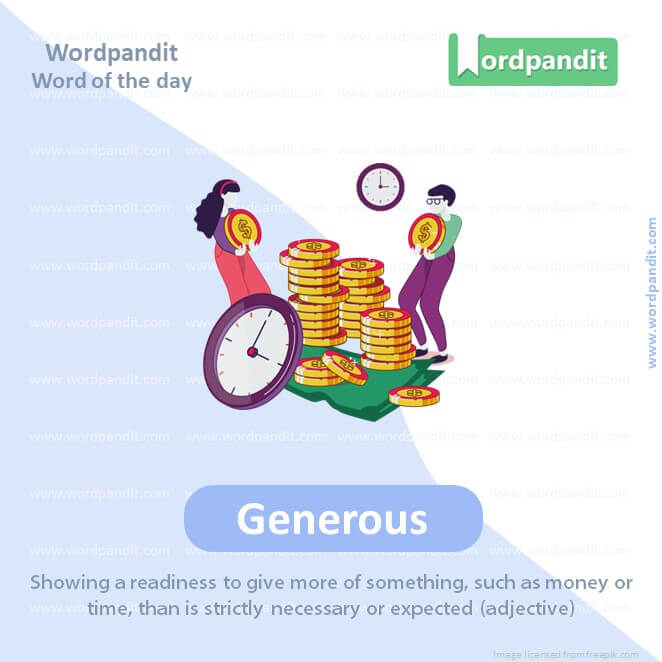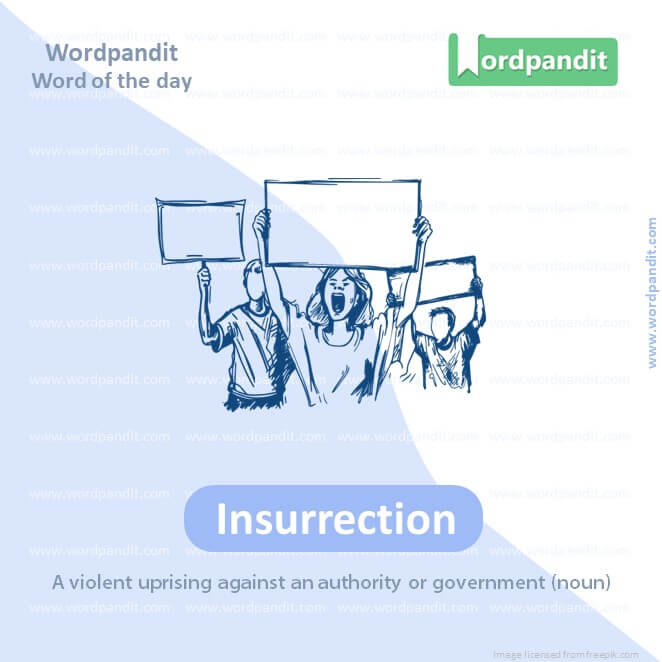Daily Vocabulary Words: List of Daily Used Words in Leading International Newspapers
Hi there. Welcome to this special section @ Wordpandit.
Our endeavour here is very simple: to highlight important daily vocabulary words, which you would come across in leading newspapers in the country. We have included the following newspapers in our selection:
• The New York Times
• The Washington Post
• Scientific American
• BBC
• The Guardian
• Psychology Today
• Wall Street Journal
• The Economist
We are putting in extensive work for developing your vocabulary. All you have got to do is be regular with this section and check out this post on a daily basis. This is your repository of words that are commonly used and essentially, we are posting a list of daily used words. Hence, this has significant practical application as it teaches you words that are used commonly in leading publications mentioned above.
Visit the website daily to learn words from leading international newspapers.
WORD-1: Uncannily
CONTEXT: If all this feels uncannily like last January then there is one critical political difference.
SOURCE: Guardian
EXPLANATORY PARAGRAPH: Imagine something happening in a way that is strange or surprising because it’s so accurate or similar to something else. That’s uncannily. It means something is really, really similar or accurate in a surprising way.
MEANING: In a way that is strange or eerie due to being very similar or accurate. (adverb)
PRONUNCIATION: un-KAN-uh-lee
SYNONYMS: Strangely, Eerily, Remarkably, Incredibly, Spookily
USAGE EXAMPLES:
1. He was uncannily accurate in his predictions.
2. The resemblance between the two was uncannily strong.
3. She had an uncannily good memory for details.
4. The film captured the era’s atmosphere uncannily well.

WORD-2: Straddling
CONTEXT: With a general election now on the horizon, MPs are starting to talk about the prospect of strikes straddling two administrations.
SOURCE: Guardian
EXPLANATORY PARAGRAPH: Imagine sitting on a bike with one leg on each side. That’s straddling. It means sitting or standing with a leg on either side of something, or being between two different ideas or choices.
MEANING: Sitting or standing with a leg on either side of something, or being in between two different positions or opinions. (verb, present participle)
PRONUNCIATION: STRAD-ling
SYNONYMS: Spanning, Bridging, Flanking, Beastriding, Overarching
USAGE EXAMPLES:
1. The town straddles the river, with bridges connecting both sides.
2. She’s straddling the line between two career paths.
3. The project straddles art and science.
4. He was straddling the fence on the issue.
WORD-3: Crumbling
CONTEXT: this strike seems to be about more than just pay or even the crumbling state of the NHS: it’s both more political and more fundamental than that.
SOURCE: Guardian
EXPLANATORY PARAGRAPH: Think about a cookie breaking into little pieces. That’s crumbling. It means something is breaking or falling apart into small pieces.
MEANING: Breaking or falling apart into small fragments, often indicating decay or deterioration. (verb, present participle)
PRONUNCIATION: KRUHM-bling
SYNONYMS: Disintegrating, Collapsing, Fragmenting, Breaking Up, Decaying
USAGE EXAMPLES:
1. The old wall was crumbling away.
2. Their hopes were crumbling after the bad news.
3. The cake started crumbling when it was cut.
4. The empire was slowly crumbling from within.

WORD-4: Interagency
CONTEXT: The District also approved more than $11 million to support the office of deputy mayor for public safety and justice, which will “develop and lead interagency public safety initiatives that improve the quality of life in the District.
SOURCE: Washington Post
EXPLANATORY PARAGRAPH: Imagine different teams working together on a big school project. Interagency is like that. It means involving or relating to different groups, especially different government departments working together.
MEANING: Involving or relating to cooperation between different agencies, especially government departments. (adjective)
PRONUNCIATION: in-ter-AY-jen-see
SYNONYMS: Collaborative, Joint, Cooperative, Multi-agency, Interdepartmental
USAGE EXAMPLES:
1. The project required interagency collaboration.
2. It was an interagency effort to address the crisis.
3. The report highlighted the need for interagency communication.
4. She works in an interagency task force.

WORD-5: Generous
CONTEXT: Meanwhile shadow health secretary Wes Streeting is giving little sign that Labour would be more generous and must know that if he does, junior doctors will only be encouraged to wait this government out, with painful consequences for patients.
SOURCE: Guardian
EXPLANATORY PARAGRAPH: Think about someone sharing their toys with everyone. That’s being generous. It means willingly giving more of something, like time or money, than is necessary or expected.
MEANING: Showing a readiness to give more of something, such as money or time, than is strictly necessary or expected. (adjective)
PRONUNCIATION: JEN-uh-rus
SYNONYMS: Kind, Giving, Charitable, Benevolent, Magnanimous
USAGE EXAMPLES:
1. She is known for her generous nature.
2. He made a generous donation to the charity.
3. Their host was generous with food and drink.
4. The company offers generous benefits to its employees.

WORD-6: Insurrection
CONTEXT: A Post-University of Maryland poll published this week shows a sizable share of Americans accept lies about the 2020 election and the insurrection that followed on Jan. 6, 2021.
SOURCE: Washington Post
EXPLANATORY PARAGRAPH: Imagine a big group of people deciding to fight against the leaders of their town. That’s insurrection. It means a violent uprising against an authority or government.
MEANING: A violent uprising against an authority or government. (noun)
PRONUNCIATION: in-sur-REK-shun
SYNONYMS: Rebellion, Revolt, Uprising, Mutiny, Revolt
USAGE EXAMPLES:
1. The military quickly suppressed the insurrection.
2. The insurrection was sparked by widespread discontent.
3. They were arrested for their roles in the insurrection.
4. The government feared an insurrection.

WORD-7: Endangered
CONTEXT: His reckless words endangered my family and everyone at the Capitol that day.”
SOURCE: Washington Post
EXPLANATORY PARAGRAPH: Think about animals that there aren’t many left of, like tigers. Endangered means they are at risk of not existing anymore.
MEANING: At risk of becoming extinct or very rare. (adjective)
PRONUNCIATION: en-DAYN-jerd
SYNONYMS: Threatened, At Risk, Vulnerable, Imperiled, In Danger
USAGE EXAMPLES:
1. The panda is an endangered species.
2. Conservation efforts aim to protect endangered wildlife.
3. Their actions endangered the success of the project.
4. Many habitats are endangered due to deforestation.
WORD-8: Ludicrous
CONTEXT: FBI Director Christopher A. Wray, a Republican appointed by Mr. Trump, has testified categorically and under oath that there’s nothing to the “ludicrous” conspiracy theories that his agency played any role in urging people into the Capitol.
SOURCE: Washington Post
EXPLANATORY PARAGRAPH: Imagine someone saying that a fish can walk on land. That’s ludicrous. It means something is so silly or unreasonable that it makes you laugh.
MEANING: So foolish, unreasonable, or out of place as to be amusing. (adjective)
PRONUNCIATION: LOO-di-kruhs
SYNONYMS: Ridiculous, Absurd, Preposterous, Laughable, Outrageous
USAGE EXAMPLES:
1. The idea seemed ludicrous at first.
2. They were making ludicrous claims about their product.
3. The amount of money spent was ludicrous.
4. He looked ludicrous in that outfit.
WORD-9: Perilously
CONTEXT: much-needed operations and appointments have been cancelled and rotas ripped up to provide a bare minimum of emergency care for the six days of the strike, but things are stretched perilously thin.
SOURCE: Guardian
EXPLANATORY PARAGRAPH: Think about walking on a very narrow bridge over a big river. That’s perilously. It means doing something that is very dangerous or risky.
MEANING: In a way that is full of danger or risk. (adverb)
PRONUNCIATION: PEHR-uh-lus-lee
SYNONYMS: Dangerously, Riskily, Precariously, Hazardously, Treacherously
USAGE EXAMPLES:
1. They were perilously close to falling off the cliff.
2. The company was perilously near bankruptcy.
3. She lived her life perilously, always seeking adventure.
4. The boat was perilously overloaded.
WORD-10: Splurging
CONTEXT: It begins with his splurging on a nifty new scent-blocking hunting outfit. It ends with him splattered in blood.
SOURCE: Washington Post
EXPLANATORY PARAGRAPH: Imagine going to a store and buying lots of toys, more than usual. That’s splurging. It means spending a lot of money on something, usually as a treat.
MEANING: Spending money freely or extravagantly, often for pleasure. (verb, present participle)
PRONUNCIATION: SPLURJ-ing
SYNONYMS: Expend, Lavish, Squander, Overspend, Indulge
USAGE EXAMPLES:
1. She’s splurging on a new car this year.
2. They decided to splurge on a luxury vacation.
3. Splurging occasionally can be enjoyable.
4. He was guilty of splurging on expensive gadgets.
Vocabulary 100 Words
Diving into the exciting waters of language learning, encountering a list of ‘vocabulary 100 words’ is a common step. These lists, often tailored to specific proficiency levels or topics, present microcosms of the language, cradling essential words that broaden our linguistic comprehension. However, to effectively grasp ‘vocabulary 100 words’, a well-crafted strategy is imperative.
The cornerstone of learning any ‘vocabulary 100 words’ lies in understanding each word with depth. This involves more than just registering the meaning. It extends to understanding its use in different contexts, its nuances, and its connotations.
When navigating ‘vocabulary 100 words’, pacing is extremely important. Rather than trying to absorb all the words at once, a steady approach of learning a few words every day promotes better retention. This assures your brain is not overwhelmed with information, resulting in more effective learning.
Interactivity adds a significant boost while engaging with ‘vocabulary 100 words’. Employ tools like flashcards or digital language-learning apps to make your learning experience more engaging. Regular tests or quizzes provided by these platforms can be beneficial in gauging your progress and identifying areas that need additional work.
Real-world usage significantly enriches understanding of ‘vocabulary 100 words’. Incorporate the words into your daily conversations, writing, or social media interactions. This practice element not only empowers retention but also bolsters your confidence in using these words correctly.
In conclusion, mastering ‘vocabulary 100 words’ is an enriching journey that calls for systematic learning, paced approach, engaging tools, and practical application. As you venture down this path, you’ll find the ‘vocabulary 100 words’ transforming from daunting lists into friendly allies, accompanying you on your thrilling linguistic exploration.











